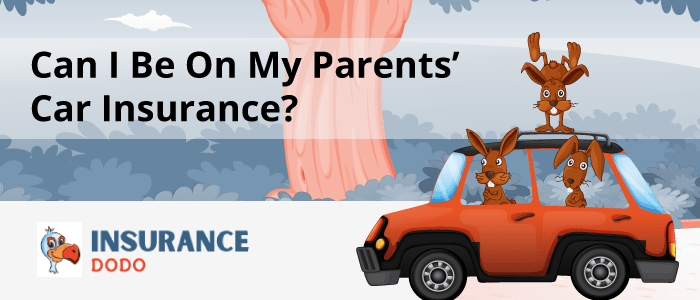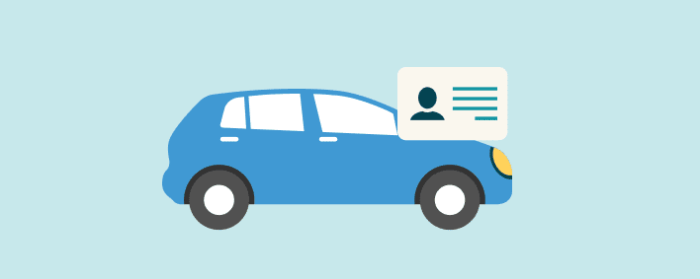
Can I insure my friend’s car in my name? This question arises frequently, especially when a friend needs temporary car insurance or faces challenges obtaining coverage. While it might seem like a simple solution, there are several legal, financial, and practical considerations to weigh before making such a decision.
Insuring a friend’s car in your name can have unexpected consequences, impacting both your insurance premiums and driving record. It’s crucial to understand the legal implications, insurance policy stipulations, and potential financial ramifications before taking such a step.
Legal Implications

Insuring a friend’s car in your name might seem like a simple favor, but it carries significant legal implications that could lead to unexpected consequences. It’s crucial to understand the legal definitions of “owner” and “insured” and the potential risks associated with this arrangement.
Legal Definitions of Owner and Insured
The terms “owner” and “insured” are distinct in the context of car insurance. The owner is the legal titleholder of the vehicle, while the insured is the person or entity covered by the insurance policy. While the owner may not always be the insured, they are usually responsible for maintaining insurance on the vehicle. When you insure your friend’s car in your name, you become the “insured” on the policy, even though you are not the legal owner.
Potential Risks and Liabilities
- Increased Premiums: Your insurance premiums might increase if you insure a car with a higher risk profile than your own. This could happen if your friend has a poor driving record or if the car is more expensive or has a higher risk of theft.
- Claims Disputes: If your friend has an accident while driving their car insured in your name, you could face disputes with the insurance company. For example, if your friend is at fault, the insurance company may try to hold you responsible for the accident.
- Fraudulent Claims: If your friend makes a fraudulent claim, you could be held liable for the fraudulent activity, even if you were unaware of it.
- Legal Action: If your friend is involved in an accident that causes injury or property damage, you could be sued by the other party, even if you were not driving the car.
Examples of Legal Issues
- Scenario 1: Your friend has a history of speeding tickets and accidents. When you insure their car in your name, your insurance premiums increase significantly. This could make it difficult for you to afford the insurance, and you might be forced to cancel the policy, leaving your friend without coverage.
- Scenario 2: Your friend gets into an accident while driving your insured car. The other driver sues you for damages, claiming you were negligent in allowing your friend to drive your car. You could be held liable for the damages, even if you were not present at the time of the accident.
- Scenario 3: Your friend files a fraudulent claim with your insurance company. The insurance company discovers the fraud and cancels your policy. You could be held responsible for any outstanding claims, even if you were unaware of the fraudulent activity.
Insurance Policy Considerations
Car insurance policies are designed to protect the policyholder and their vehicle in case of an accident or other covered event. However, when the insured is not the owner of the vehicle, the policy’s coverage can be affected. This is because most insurance policies are written to cover the specific vehicle identified in the policy, and the policyholder is usually expected to be the owner of the vehicle.
Coverage for Non-Owners
Insurance policies typically handle situations where the insured is not the owner of the vehicle in different ways. Here are some common approaches:
- Named Non-Owner Coverage: Some insurance companies offer specific coverage for non-owners, which extends liability coverage to the insured while driving any vehicle, even if they don’t own it. This coverage is typically limited to liability and does not include coverage for damage to the non-owned vehicle.
- Permissive Use: Most insurance policies include permissive use coverage, which allows the owner’s insurance to cover a person driving the vehicle with the owner’s permission. However, this coverage is often limited to situations where the owner is present in the vehicle or has explicitly given permission for the non-owner to drive it.
- Excluded Coverage: Some insurance policies may explicitly exclude coverage for situations where the insured is not the owner of the vehicle. This means that the policy would not cover any damages or liabilities arising from an accident involving a non-owned vehicle.
Consequences of an Accident
If an accident occurs while the insured is driving a vehicle they do not own, the consequences can vary depending on the insurance policy and the specific circumstances.
- Liability Coverage: If the insured is at fault for the accident, they could be held personally liable for damages, including medical expenses, property damage, and lost wages. The insurance policy may cover these liabilities up to the policy limits, but only if the policy includes coverage for non-owned vehicles.
- Coverage for Non-Owned Vehicle: The insured’s policy may not cover damage to the non-owned vehicle. In this case, the owner of the vehicle would be responsible for filing a claim with their own insurance company. However, if the owner’s insurance policy has a higher deductible than the insured’s policy, the insured may end up paying more out of pocket.
- Potential for Higher Premiums: If the insured is found at fault for an accident involving a non-owned vehicle, their insurance premiums may increase. This is because insurance companies view accidents as a sign of increased risk, and they may adjust premiums accordingly.
Hypothetical Scenario
Imagine that Sarah is insured with Company A and is driving her friend John’s car with his permission. While driving, Sarah gets into an accident with another vehicle, causing damage to John’s car and the other vehicle.
- Scenario 1: Sarah is the owner of the vehicle: Sarah’s insurance policy with Company A will cover the damages to John’s car and the other vehicle, up to the policy limits. Sarah will likely have to pay her deductible, but Company A will handle the rest of the claim.
- Scenario 2: Sarah is not the owner of the vehicle: In this case, Sarah’s insurance policy with Company A may or may not cover the damages. If Sarah has named non-owner coverage, Company A will cover the damages up to the policy limits. If Sarah’s policy does not include non-owner coverage, John’s insurance company will be responsible for covering the damages to his car, while the other vehicle’s insurance company will cover the damages to their vehicle. Sarah may be responsible for paying a deductible to John’s insurance company, depending on the terms of his policy.
Financial Impacts: Can I Insure My Friend’s Car In My Name
Insuring a friend’s car in your name can have significant financial implications, affecting your insurance premiums, deductibles, and potential claims. It’s crucial to understand these factors before making a decision.
Premium Costs
The cost of insuring a car in your name will depend on various factors, including your driving history, the car’s make and model, your age, and your location. Generally, insuring a car in your name will likely result in higher premiums than if your friend insured the car themselves. This is because insurance companies assess risk based on the individual driver’s history and demographics. If your friend has a poor driving record or a history of claims, their premiums will be higher. However, if you have a clean driving record and a good credit score, you might be able to get a lower premium than your friend.
Deductibles
Your deductible is the amount you pay out-of-pocket for repairs or replacement after an accident before your insurance coverage kicks in. If you insure your friend’s car, you will be responsible for paying the deductible if an accident occurs. This can be a significant financial burden, especially if you are not prepared for it.
Potential Claims
If an accident occurs while your friend is driving the car, the claim will be filed under your insurance policy. This means that your insurance premiums could increase, and your driving record could be affected. Even if your friend is at fault for the accident, your insurance company may still raise your premiums due to the claim.
Comparing Costs
To determine the most cost-effective option, it’s essential to compare the cost of insuring the car in your name versus your friend’s name. Obtain quotes from different insurance companies for both scenarios, considering factors like coverage levels, deductibles, and potential discounts. This comparison will help you understand the potential financial implications of each option.
Impact of Claims
A claim filed against your insurance policy can have a significant impact on your premiums and driving record. Insurance companies consider the frequency and severity of claims when determining premiums. A single claim can result in a substantial increase in your premiums, potentially lasting for several years. Additionally, a claim can negatively impact your driving record, leading to higher premiums in the future, even if you are not at fault for the accident.
Practical Considerations
Insuring a friend’s car in your name can seem like a simple solution, but there are a number of practical considerations you should carefully weigh before taking this step. These considerations involve communication, documentation, and potential disagreements.
Communication with the Insurance Company
- Open and honest communication with your insurance company is crucial. Be upfront about the fact that you are insuring a car that you do not own.
- Explain the situation clearly, and ensure they understand the specific details of the agreement you have with your friend.
- This helps avoid any misunderstandings or complications later, especially in case of an accident or claim.
Ownership Documentation
- It is essential to have clear and accurate documentation regarding the ownership of the vehicle. This includes the title, registration, and any other relevant paperwork.
- Ensure the insurance company has access to these documents to avoid any issues with coverage or claims processing.
- In case of an accident or dispute, having proper documentation can be crucial in proving your friend’s ownership of the vehicle and your right to insure it.
Potential Disputes
- Be prepared for potential disputes that might arise from insuring your friend’s car in your name. These could involve disagreements over payment of premiums, responsibility for accidents, or the eventual transfer of ownership.
- It is essential to have a clear understanding of your responsibilities and rights, and to document all agreements and communication with your friend.
- It is also advisable to consult with an attorney to understand the legal implications of such an arrangement.
Transferring Ownership
- If your friend decides to sell the car, the process of transferring ownership will impact your insurance coverage.
- You will need to notify your insurance company about the change in ownership and update your policy accordingly.
- The new owner will likely need to obtain their own insurance policy, and you may be released from any liability related to the vehicle once the transfer is complete.
Tips for Ensuring Transparency and Clear Communication, Can i insure my friend’s car in my name
- Create a written agreement outlining the terms of the arrangement, including responsibilities for premiums, maintenance, and any potential disputes.
- Keep a record of all communication with your friend and the insurance company, including dates, times, and content of conversations.
- Be honest and transparent with both your friend and the insurance company throughout the process.
Alternative Solutions

While insuring a friend’s car in your name might seem like a convenient solution, it’s crucial to explore alternative options that could be more suitable and beneficial in the long run. Let’s delve into some viable alternatives and analyze their pros and cons.
Adding Your Friend as a Named Driver
Adding your friend as a named driver to your existing insurance policy is a common and straightforward solution. This approach allows your friend to drive your car legally, and your insurance will cover them in case of an accident.
Adding a named driver to your policy can be advantageous in several ways:
- Cost-Effective: It often proves cheaper than insuring the car solely in your friend’s name, especially if they are a young or inexperienced driver.
- Simplified Process: It’s generally a simple process, requiring minimal paperwork and communication with your insurer.
- Existing Coverage: Your friend automatically benefits from the existing coverage on your policy, including comprehensive, collision, and liability coverage.
However, adding a named driver comes with its own set of considerations:
- Increased Premiums: Adding a driver to your policy can significantly increase your insurance premiums, especially if your friend has a poor driving record or is considered a high-risk driver.
- Impact on Your No-Claims Bonus: A claim made by your friend could affect your no-claims bonus, potentially increasing your future premiums.
- Potential for Disputes: If your friend is involved in an accident, you might face complications regarding liability and insurance claims, especially if you weren’t present at the time of the accident.
Encouraging Your Friend to Obtain Their Own Insurance
The most responsible and independent approach is for your friend to obtain their own car insurance policy. This ensures that they are fully covered for any accidents or incidents they might be involved in, and it avoids any potential legal or financial complications for you.
- Full Responsibility: This option fosters a sense of responsibility and independence in your friend, as they are solely responsible for their own insurance and driving record.
- No Impact on Your Policy: Your friend’s insurance policy will not affect your premiums or no-claims bonus, ensuring your driving record remains unaffected.
- Clear Liability: In case of an accident, your friend’s insurance will cover the damages and liabilities, preventing any potential disputes or complications between you and your friend.
However, this option also has some potential drawbacks:
- Higher Costs: Obtaining their own insurance policy might be more expensive for your friend, especially if they are a young or inexperienced driver.
- Potential for Coverage Gaps: If your friend fails to maintain adequate insurance coverage, they could face significant financial consequences in case of an accident.
- Limited Coverage: Your friend’s insurance policy might not provide the same level of coverage as your existing policy, potentially leaving them vulnerable in certain situations.
Table Comparing Alternative Solutions
| Option | Pros | Cons |
|—|—|—|
| Adding Friend as Named Driver | Cost-effective, simplified process, existing coverage | Increased premiums, impact on no-claims bonus, potential for disputes |
| Encouraging Friend to Obtain Own Insurance | Full responsibility, no impact on your policy, clear liability | Higher costs, potential for coverage gaps, limited coverage |
Last Recap

In conclusion, while it may seem convenient to insure a friend’s car in your name, it’s essential to understand the potential consequences. Exploring alternative solutions like adding them as a named driver to your policy or encouraging them to secure their own insurance can be more beneficial in the long run. Always prioritize transparency and communication with your insurance provider to ensure you’re making the best decision for your personal and financial well-being.
Clarifying Questions
What if my friend gets into an accident while driving my insured car?
If your friend gets into an accident while driving your insured car, your insurance will likely cover the damages and injuries, but your premiums could increase. You might also face legal repercussions if the accident was caused by negligence on your friend’s part.
Can I insure my friend’s car in my name if they don’t have a driver’s license?
No, most insurance companies will not allow you to insure a car in your name if the driver doesn’t have a valid driver’s license. It’s illegal and poses significant risks for both you and your insurance provider.
How does insuring a friend’s car affect my driving record?
Any accidents or violations that occur while your friend is driving your insured car will be reflected on your driving record. This can lead to higher premiums and potentially even license suspension.




